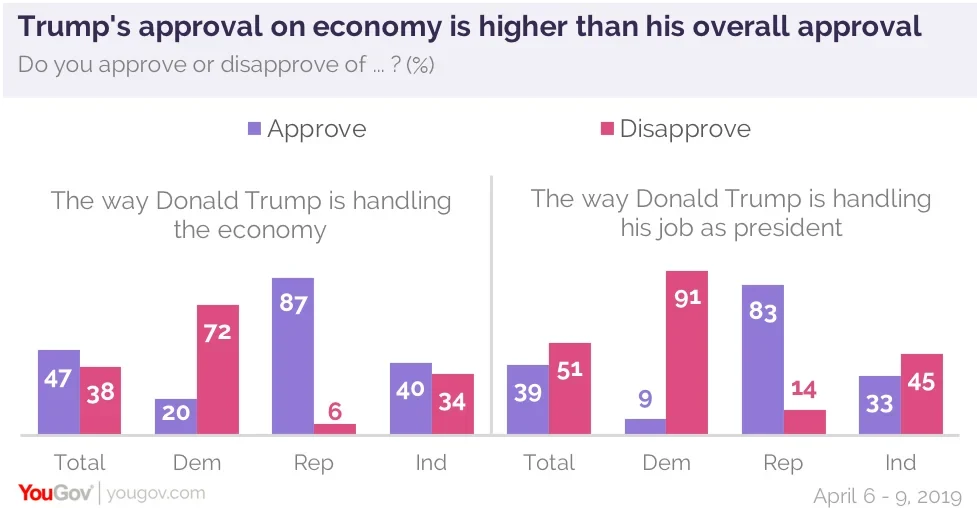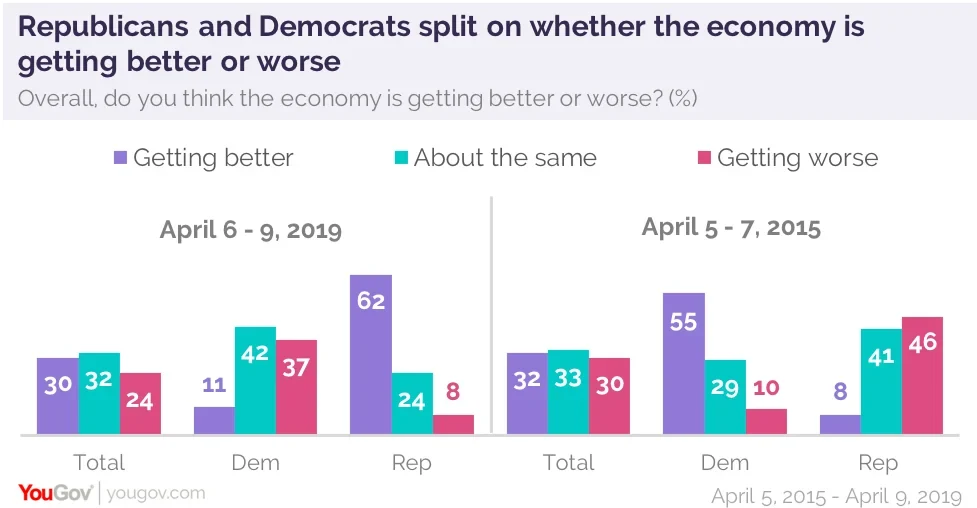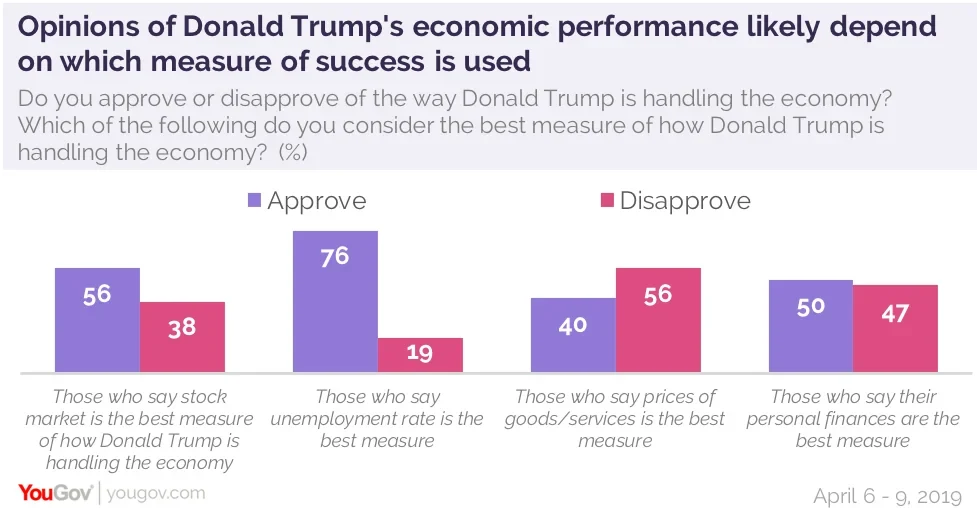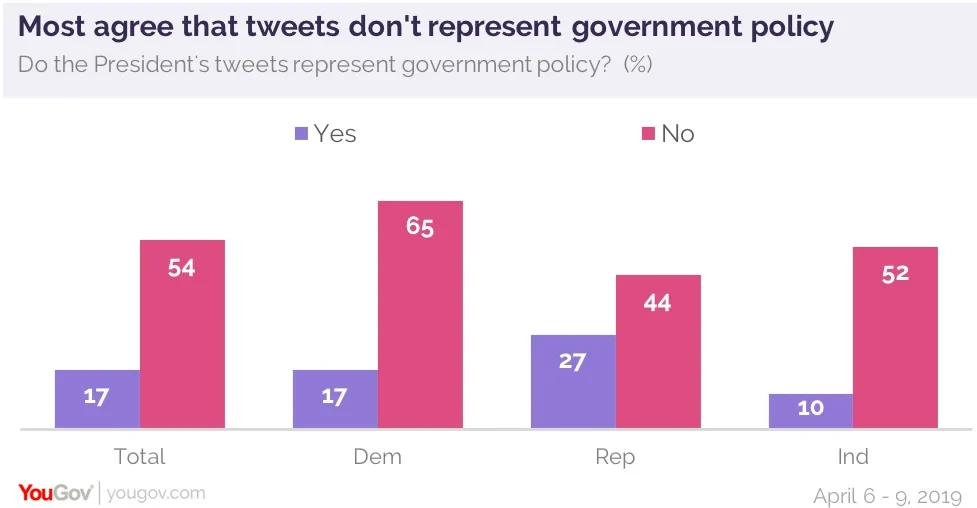Though only 39% approve of how Donald Trump is handling his job as president, 47% approve of how he is handling the economy
President Donald Trump has benefited from positive economic news thus far in his current term: low unemployment, continued job growth, and a generally rising stock market. For two-thirds of the public in the latest Economist/YouGov Poll, the economy is a very important issue. The President’s approval rating for handling the economy outpaces the public’s assessment of his overall job. Americans approve of how he is handling the economy; they disapprove of how he is handling his job overall.

Nearly one in five of those who disapprove of President Trump’s overall job performance approve of the President’s handling of the economy.
Americans have lived with an improving economy for several years now, but they are guided as much by partisanship as they are by what they see and hear about the state of the country. And what Americans believe they see and hear is also a matter of who they are. Although about twice as many say they have heard mostly positive news about the economy as say they have heard mostly negative news about it, 53% of Republicans say they have heard mostly positive news, while just 18% of Democrats agree About as many Democrats (21%) say the news they have heard about the economy has been mostly negative.
However, Democrats (40%) and Republicans (43%) are equally likely to know the unemployment rate is below 5%, where it has been for the entire Trump Administration (it first dropped below 5% in 2016, when Democrat Barack Obama was President).
Evaluating the economy is a matter of politics in recent years. In April 2015, the third year of Barack Obama’s second term, Americans were beginning to believe there was a better economy. But many of those believers were Democrats. Now, Republicans are the economic cheerleaders, and Democrats more negative.

The jobless rate in April 2015 was 5.4%, higher than it is today, but it had dropped considerably from the early days of the Obama Administration, when it neared 10%. Then, Democrats saw the silver lining; Republicans did not.
There is relatively little concern among those working today about personally becoming part of the calculation of the jobless. One in ten say they are very worried about losing their job; two-thirds are not worried at all. For most of Barack Obama’s two terms, there was less optimism about the security of Americans’ jobs.
The President rejected the unemployment numbers as “fake” before he became President. But now it and the stock market are the principle reasons his approval rating on the economy is positive. Those who use those measures to evaluate the president’s handling of the economy approve of how he is handling that issue; those who look at prices are negative about his performance, and those who use their own financial situation, are closely divided.

Less than a third of Americans (29%) cite the jobless rate when they are asked how they evaluate the President’s handling of the economy. 22% cite prices. 29% aren’t sure which measure is best: that group disapproves of the President on the economy 40% to 17%.
For many, the President appears to be on his own when he is making decisions. By nearly three to one, Americans believe he mostly ignores his own advisers’ guidance. Republicans are closely divided on this. In addition, by nearly four to one, the public think he reacts and speaks without thinking much, and a majority of Republicans agree.
That makes it hard for many Americans to believe the President’s pronouncements, on the economy and on issues in general. Half the country believes he says incorrect things often (76% believes he says things that are not correct at least sometimes, including two-thirds of Republicans). 61% overall believe half or fewer of his tweets. Consequently, despite the claim that they are government policy, most Americans don’t want his tweets to be seen that way.

There is more Americans must consider when they evaluate how the President handles his job overall: for many, other issues matter more than the economy. Republicans prioritize immigration (27%) over the economy (17%) when asked the issue that matters most to them. Democrats name health care (30%) and the environment (16%) more often than the economy (12%). The public’s evaluation of the President on those issues are either negative (on health care and the environment) or mixed (on immigration).
Related: Taxes: They are hard to do, but for many this year there may be more to pay
See the full toplines and tables results here.
Photo: Getty







